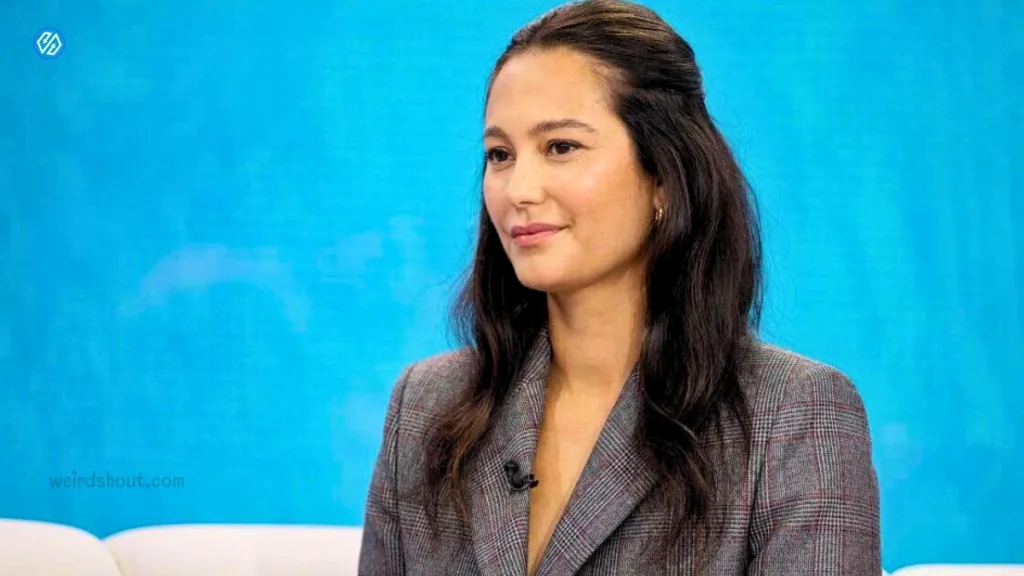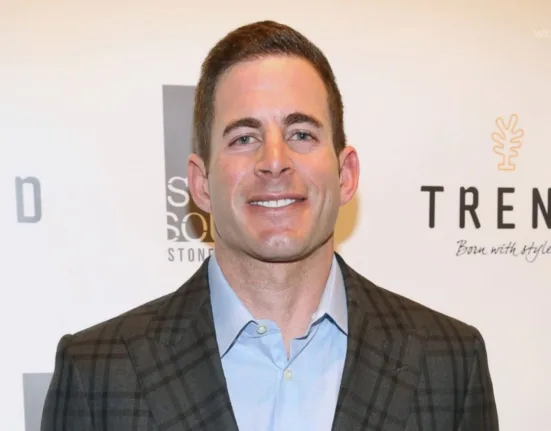Heming Willis grants a rare TV interview during World FTD Awareness Week, shedding light on her husband’s public diagnosis.
Bruce Willis’ Wife, Emma, Provides His Health Update
Emma Heming Willis, the wife of action star Bruce Willis, has opened up about her role as a caregiver for the first time since her husband’s dementia diagnosis. In an exclusive interview with TODAY co-anchor Hoda Kotb, the mother of two and founder of Make Time Wellness shared her journey.
She appeared on TODAY on September 25 to mark the beginning of World Frontotemporal Dementia Awareness Week, alongside Susan Dickinson, CEO of the Association for Frontotemporal Degeneration. Earlier this year, Bruce Willis’ family revealed his diagnosis with the condition.
During their conversation, Heming Willis provided an update on Bruce Willis‘ health and discussed their journey living with frontotemporal dementia. She also conveyed what she wishes people to understand about the caregiving experience for loved ones facing conditions like this.
Heming Willis expressed on TODAY, “Dementia is hard. It’s hard on the person diagnosed, it’s also hard on the family. And that is no different for Bruce, or myself, or our girls. When they say this is a family disease, it really is.”
She went on to explain that it remains uncertain whether her husband is aware of his condition, stating, “It’s hard to know.”
Recent medical diagnosis for Bruce Willis
In March 2022, Bruce Willis’ family publicly disclosed that he’d been diagnosed with aphasia, leading to his decision to step away from acting. The disorder affects a person’s language processing and communication abilities. Someone with aphasia may have trouble understanding speech or with reading or writing, for example.
In February 2023, Bruce Willis’ family shared another update on his health. This time, they revealed that his condition had “progressed,” and he’d been diagnosed with frontotemporal dementia.
Frontotemporal dementia is different from Alzheimer’s in a few ways. In particular, it affects a different part of the brain — language processing areas rather than areas involved in memory — so the symptoms present differently.
READ ALIKE – Michael J Fox Discusses The Difficulties Of Living With Parkinson Disease
“It can affect speech, behaviors, personality, and what we call executive functioning,” Dickinson explained, referring to skills that assist in planning ahead and achieving goals. Frontotemporal dementia often leads to misdiagnosis, so Dickinson highlighted some of its prominent symptoms.

“We’re essentially looking at unexplained changes in a person’s behavior. For instance, someone who previously communicated perfectly may struggle to form coherent sentences or lose the meaning of specific words,” she noted. Additionally, abrupt difficulties with financial matters, work-related issues, or a pattern of making poor decisions or failing to complete tasks can also serve as warning signs.
Coming to terms with her husband’s diagnosis was a complex journey, as Heming Willis explained on TODAY. “Understanding his diagnosis was both a blessing and a curse,” she shared. “It allowed me to grasp what was happening, which ultimately led to acceptance of the situation. It doesn’t make the process any less painful, but being aware of what Bruce is going through makes it slightly more bearable.”
Caring for a loved one who has dementia
Heming Willis prefers to refer to herself as a “care partner” rather than a caretaker. She emphasized the significance of care partners taking care of themselves to ensure they can provide the best support to their loved ones.
She also expressed that her husband remains a source of valuable lessons, describing him as “the gift that keeps on giving.” Bruce Willis has imparted traits like love, patience, and resilience to their two daughters, Mabel and Evelyn.
“It’s teaching them so much about care, love, and it’s truly a beautiful aspect amidst the sadness,” Heming Willis reflected.

READ ALIKE – Sum 41’s Deryck Whibley Hospitalized with Pneumonia: Latest Updates
She emphasized the significance of seeking help and shared that it has been a crucial aspect of her caregiving journey for her husband. Heming Willis mentioned that she has sought resources from organizations like AFTD (Association for Frontotemporal Degeneration).
During World FTD Awareness Week, Heming Willis is leveraging her platform to disseminate valuable information about caregiving for individuals with FTD. She is releasing a new video in conversation with experts every day on her YouTube channel.
For guidance and resources related to frontotemporal dementia, diagnosis, care, and support, individuals can reach out to AFTD’s HelpLine at 866-507-7222 or via email at info@theaftd.org.











